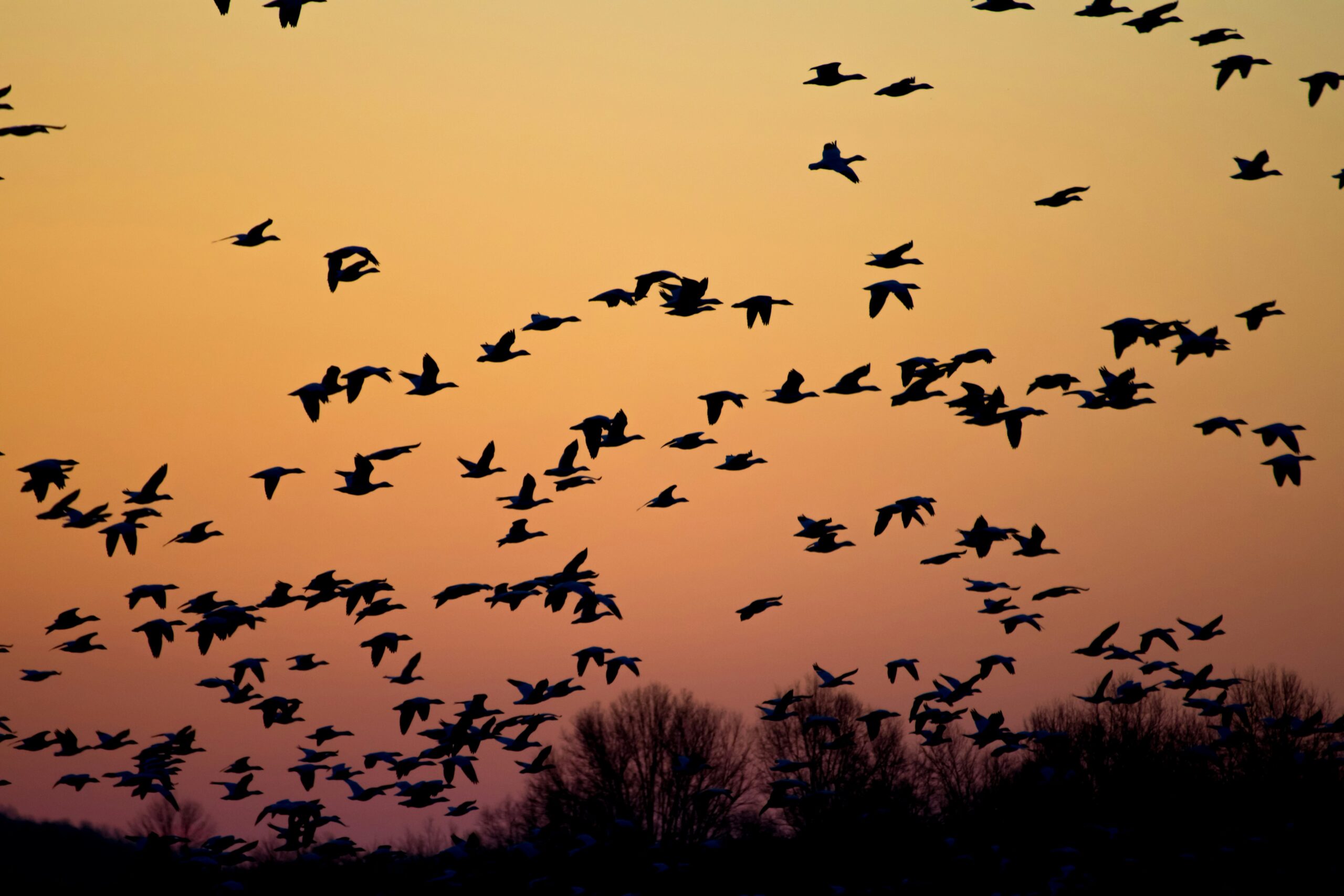Days of Awareness: December
Partners in Project Green shares Days of Awareness each month to spread awareness and start conversations. These days may have a social, historical, or sustainable significance worthy of our attention. These are just a small sampling of important days to acknowledge or remember. If we missed any days of importance that should be included, please share them with us.
Winter Solstice – Dec 21
In the northern hemisphere, the winter solstice is the exact moment when half of Earth is tilted the farthest away from the sun. With less sunlight reaching the planet, this also is the shortest day (or longest night) of the year and typically falls on either December 21 or 22. This year, winter solstice will be celebrated on December 21. In the southern hemisphere, winter solstice takes place in June because the seasons are reversed below the Equator.
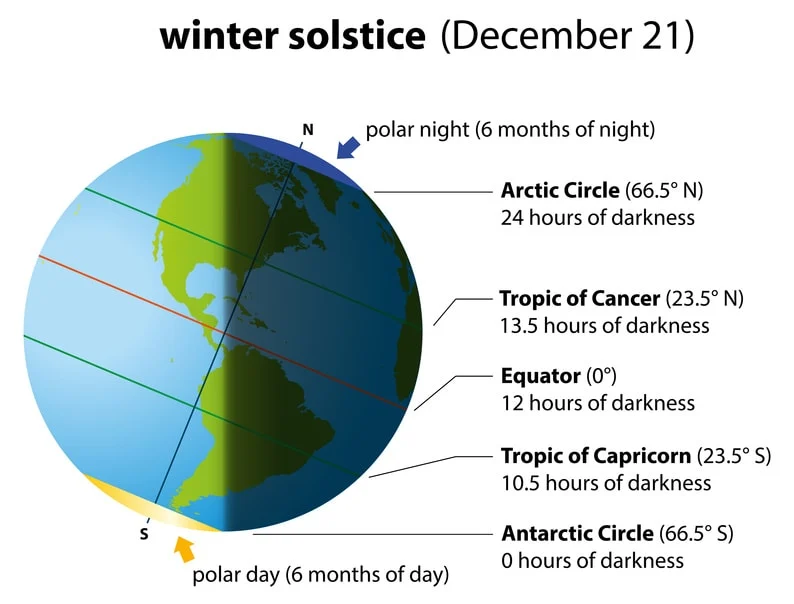
Ways to Get Involved:
- Looking for winter solstice events in Toronto? TRCA has a number of events that are open for registration now! https://trca.ca/winter-solstice/#:~:text=December%2021%2C%202024%20marks%20the,in%20celebrating%20this%20astronomical%20event!
- Check out some images of worldwide winter solstice celebrations: https://www.youtube.com/watch?v=_GJ7KyMn8rM
- What does the winter solstice mean in the Cree tradition? https://www.cbc.ca/player/play/video/1.4461274
Christmas – Dec 25
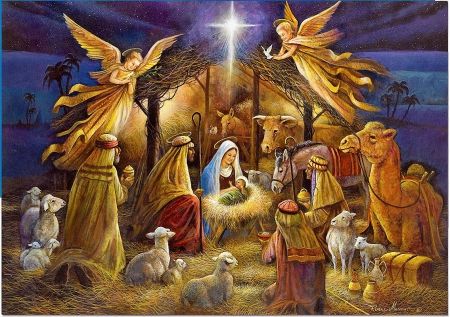
Christmas is the Christian festival celebrating the birth of Jesus Christ. It is celebrated by most Christian denominations on December 25 and by Orthodox Christians on January 7. Over time, Christmas has evolved into a global celebration and is marked by both religious and secular people.
Some non-religious Christmas traditions include the decoration of evergreen trees known as Christmas trees, popularized in Victorian Britain. Santa Claus, who has several names around the world including Father Christmas and Père Noël, is known for being jolly and kind and visits children on Christmas Eve leaving presents in their homes.
Ways to Get Involved:
- Take a look at Christmas celebrations around the world: https://www.youtube.com/watch?v=edSG4EQjH_s
Hanukkah – Dec 25 – Jan 2
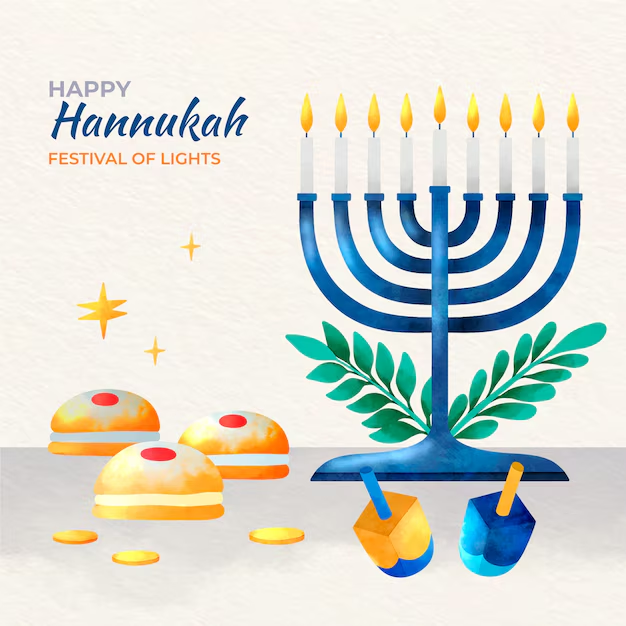
Hanukkah, or Chanukah in Hebrew, is the Jewish festival of light. Celebrated for eight nights and days, Hanukkah typically falls between late-November and late-December, with the exact dates being determined by the Hebrew (or Kislev) calendar. Hanukkah celebrates the rededication of the Second Temple in Jerusalem by the Maccabees and the miracle of a tiny vial of oil that, meant to last just one day, burned for eight days in the temple’s menorah.
Hanukkah is celebrated by the lighting of a candleholder called a menorah on each of the festival’s eight nights. Jewish people recite special blessings and prayers, sing songs and exchange gifts as they gather to light the menorah. Traditional Hanukkah foods include deep-fried jelly donuts called sufganiyot and potato pancakes called latkes. These oil-based dishes commemorate the long-lasting oil lamp in ancient Jewish history.
Families also spin a top called a dreidel with the chance to win chocolate gelt (chocolate coins) if the dreidel lands the right way.
Ways to Get Involved:
- Learn more about Hanukkah: https://www.youtube.com/watch?v=iVt4aMMxnQ4
Kwanzaa – Dec 26 to Jan 1
The celebration of Kwanzaa lasts seven days, from December 26 to January 1. Founded in 1966 by Dr. Maulana Karenga, American professor, author and activist, Kwanzaa is not a religious holiday but, rather, celebrates African family, community and culture. The name Kwanzaa is derived from a Swahili phrase (matunda ya kwanza) which means ‘first fruits’.
Each of the seven days of the celebration is dedicated to one of seven key principles and on each day, a candle is lit in a special candle holder, called a kinara. On December 31, the sixth day of Kwanzaa, a special feast called a karamu is held and features traditional African dishes. Karamus are often held in a church or community centre. On the last day of Kwanzaa, January 1, families exchange gifts known as zawadi. Zawadi is often handmade and intended to symbolize and encourage growth and success.
Kwanzaa was first celebrated in Canada in 1993.
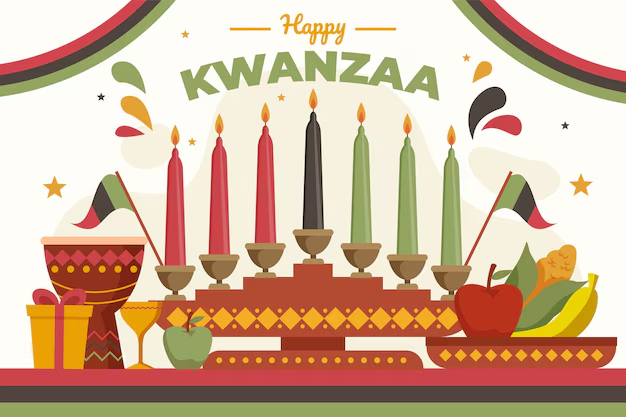
Ways to Get Involved:
- Learn more about Kwanzaa: https://www.youtube.com/watch?v=YUMlbh7PAzI

